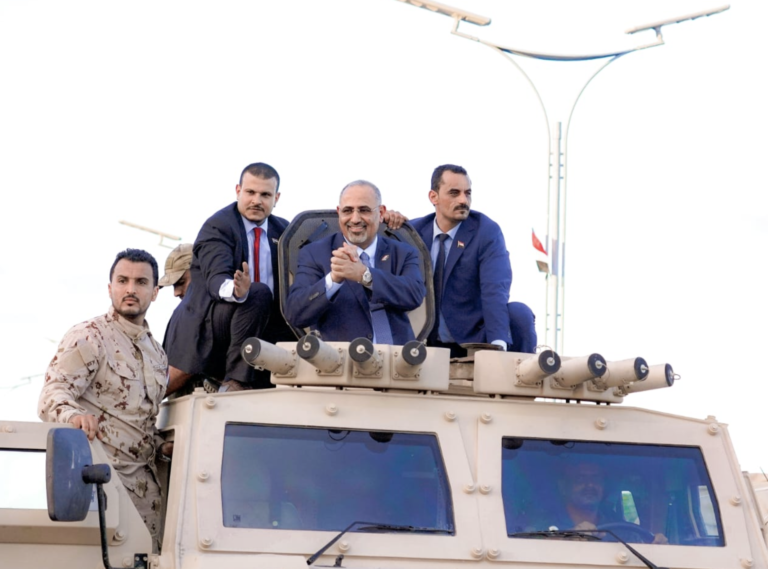
The recent Saudi-Iranian agreement, which was sponsored by China and resulted in a significant deescalation between the Houthis and Riyadh, has made other Yemeni factions wary of the future. The Southern Transitional Council is one of the parties that acted swiftly to strengthen their position in order to avoid defeat in the aftermath of the conflict.
The STC has been concentrating on achieving internal southern unity over the past two years in order to establish an inclusive southern political front that will strengthen the STC’s case for the South’s independence. Last week the STC hosted the “Southern Dialogue Conference” in Aden, attended by 330 southern delegates representing all southern provinces. Although the Southern Dialogue in Aden, Yemen, was unable to resolve all the differences between southern parties, it highlighted the southern desire for independence from South Yemen and a return to an independent south that was a sovereign state prior to its 1990 unification with north Yemen. Representatives of more than 35 parties signed a final document expressing their desire to rebuild the Southern state on a federal basis.
Yemen’s southern region has a long history of struggle and resistance. The Hirak movement, which began in 2007, represented a collective demand for greater political rights and economic development. After the conflict with the Houthis in 2015, however, the movement has evolved, with the Southern Transitional Council (STC) emerging as a key advocate for the aspirations of independence for the south.
Fernando Carvajal, an expert on armed groups and the region who served on a UN Security Council panel of experts on Yemen, told the Arabian Peninsula Institute that the dialogue that took place in Aden after two years of painstaking effort marks a turning point in the pursuit of a united southern front. Carvajal noted that the STC took a different approach to reconcile the various factions, noting that southern leaders such as Amr Albaidh and others have joined the STC and been brought to Aden, thereby bolstering the council’s standing as the successor to the Hirak movement. According to Carvajal, the STC was recognized by the Arab coalition as the representative of the Southern people, allowing the STC to make demands for the South at this crucial moment in Yemen’s history.
Carvajal suggests that the STC currently benefits from having three voices in the Yemen Presidential Council advocating for the development and fortification of the south through the Arab and international aid offered to the PLC. Adding that if the STC were to declare independence today, it would face numerous obstacles and fail to receive the necessary international recognition, we observe that the STC is engaging in internal discussions and taking steps that pave the way to independence, while also being present in the internationally recognized body of governance for Yemen, as Aidarous AlZubaidi, President of the STC, is a key member of the Yemeni Presidential council.
With three representatives in the Political and Local Councils (PLC), the STC has the ability to promote the interests of the southern population. Sharing revenue with the Houthi militants in the south continues to be a matter of dispute, as the STC opposes allocating 70 percent of oil revenues to the Houthi faction. The Houthis contend that such a move would only escalate their civil war, as they continue to view the group as an adversary. Compared to the eight million inhabitants of the southern provinces, the Houthi-controlled areas have a population of 20 million, which complicates revenue-sharing negotiations. Carvajal explains that the STC’s current membership in the PLC enables it to reap the benefits of having a central bank connected to the international system, maintain favorable exchange rates, and guarantee the uninterrupted flow of oil.
Abdulsalam Mused, is the chairman of the Southern National Dialogue Committee and the representative of the STC in Washington, D.C. from 2017 to 2020. Mused told the Arabian Peninsula Institute that the STC wanted to hear from all southern parties during the recent southern dialogue, and that the fact that some of them attended for the first time a Southern Transitional Council-sponsored conference was an accomplishment in and of itself.
“Southern figures representing various regions and societal orientations in the south attended and were able to nominate representatives for them on the committees that were established as a result of the dialogue to discuss political but also economic and social issues .” He added.
As a consequence of the ‘Southern National Dialogue,’ two influential figures in Hadramout, Eastern Yemen, were appointed as vice presidents of the Southern Transitional Council (STC).
“This was an important step toward resolving disputes between the STC and Hadramout and uniting the South.”
“Bringing Hadramout representatives to sign on the national charter sponsored by the STC marks a turning point in the struggle to unite the voices of the South.” Mused told Arabian Peninsula Institute
On Thursday, May 18, Aidarous AlZubaidi, the President of STC, was welcomed in the streets of Mukalla, Capital of Hadramout province.
